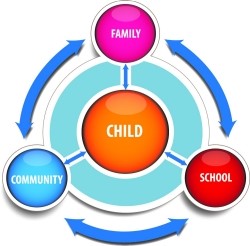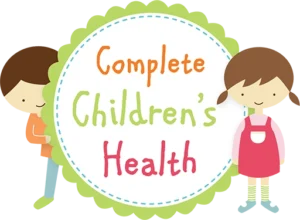
The question that runs through many parents’ minds when they make the decision to enrol in school is “Will my child be school ready?” when January rolls around. The transition to school is one of the biggest challenges in early childhood. There has been a revolution in the way that school readiness has been conceptualised in the past 20 years. Previously, we used to define school readiness solely based on cognitive skills -whether a child knows their colours, ABCs and numbers – and age. These days, school readiness takes into account a child’s holistic development – their social and emotional skills, fine motor skills, communication abilities and cognitive skills. Increasingly we are identifying a child’s social and emotional skills such as getting along with other children, being resilient when things go wrong, sharing materials and play spaces with others as one of the more important factors in determining school readiness.
Being school ready is characterised by four elements – 1) the child’s readiness for school, 2) the school’s readiness for the child, 3) the capacity of families and communities to support the child and 4) the availability of early childhood services to provide developmental opportunities for the child. This has been represented as an equation:

Ready families + Ready early childhood services + Ready communities + Ready schools = Ready children
There are many articles outlining the right questions to ask about finding the right school to thrive in. Instead, I’d like to zoom out from thinking about school readiness at age 4 or 5 and focus on early childhood development and the stages prior to school. To do this effectively requires a closer look at the ‘Ready families’ part of the equation. Child development takes place from birth. Children’s first and most important teachers are their parents.
Infants start out as capable beings ready to participate in life. For example, a 2-month-old may gaze out of a window mesmerised by trees. This is the start of initiating activities, developing interests and building attentional capacity. We can start many of the skills required to have children ready for school prior to 4 and as young as a newborn.
Multi-modal learning is the way we best learn and consolidate information, that is having the same information presented in different ways across different contexts. Here are some examples of activities that we can offer children to help them develop ‘school readiness’ skills before the age of 4:
Cognitive Skills:
- Read to them every night
- Point out numbers as you walk around the neighbourhood
- Count everything! Count when you put food on their table (e.g. blueberries) or putting apples in a bag.
- Expose them to the alphabet in various ways. Write letters in sand, read alphabet books, listen to the Wiggles ABC song, alphabet letters on their foam mats or magnets on the fridge are some ideas.
- Identify colours in your surroundings. They can have a theme (e.g. when driving, red car/blue car/yellow car) or used to identify different objects (e.g. when walking, white fence, green tree, blue sky, black dog)
- Put their name on their door and on their books and point this out to them. This will help them with recognising their name.
Emotional Skills
- Name their feelings – from birth onwards.
- Hear what they are feeling without rushing in to fix it all the time. It’s okay – and perfectly normal – to feel frustrated when things don’t go your way. As their caregiver, we can be with them and support them through this feeling without necessarily fixing it.
- Show you understand what they are feeling and why. This can look like “Yes, I see you fell down. That was a big shock to you.”
- Co-regulate with them, supporting them to find a way through it. This can take the form of breathing with them, helping squeeze their hands or just sitting with them and taking a break from the activity
- Model working through uncomfortable feelings in an adaptive fashion. It is important for children to know those uncomfortable feelings like anger, worry and sadness are normal feelings that can be managed.
Social Skills
- Take them out to areas where they can interact regularly with other peers
- Enrolment in childcare in the early years have been shown to promote children’s readiness for school
- Sit down and play with your child for at least 20 minutes every night. Teach them key social terms like “It’s my turn” with an outstretched hand or “I’m waiting” through modelling
- Let them create and initiate their own activities as much as possible. If an activity is adult-initiated (e.g. painting), see what the child would like to do with their blank canvas and support them to engage in it adaptively.
- Help them understand boundaries, limits and instructions. Parents can enforce this by following through on what they say. For example, if they’ve said “First we’re putting our shoes on, then we’re going outside”, the child should learn that the only way they are going outside is if they have put their shoes on.
Personal Independence
- When the child is ready to start exploring solids, support them in being as independent as possible with spoon feeding or finger foods
- When toddlers are confident on their feet, model walking into childcare with a bag and have them do the same. Help support them in their daily morning routine of putting their bag away and drink bottle in the trolley
- Offer them choices of what they would like and notice the various ways children will communicate their preference. They may communicate through gaze at the item, reach, pointing or verbalising their choice.
- When they are older (18 months onwards), help them do various chores around the house, such as helping pack away their toys, put the laundry in the machine, get a bowl from the cupboard etc.
- Engage them in their daily routines and support them in having an active role in the process. Think about how you can change your environment to support your child for success in daily routines such as toothbrushing, getting dressed, nappy changes, meal times and nap times.
“It is not what you do for your children, but what you have taught them to do for themselves that will make them successful human beings” – Ann Landers
Click here to make an appointment or find out more information on Onwards and Upwards Psychology
